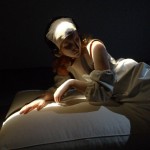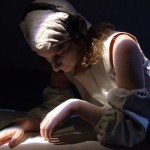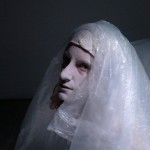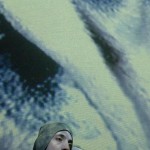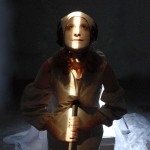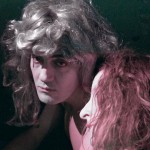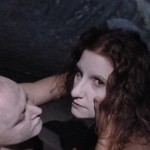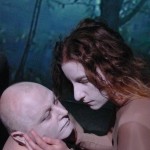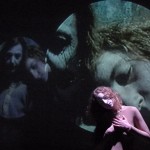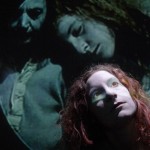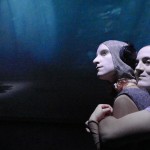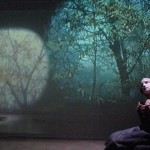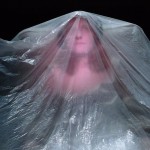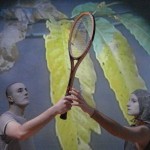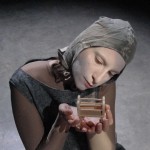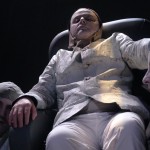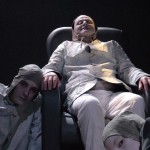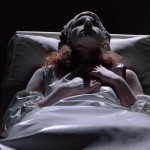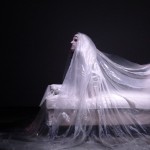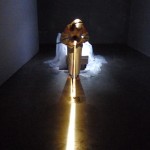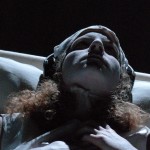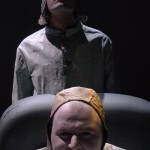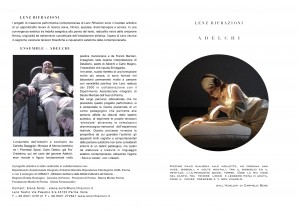
ADELCHI
Following the macrostaging of The Betrothed (The Betrothed) in 2013, the biennial project dedicated to the work by Alessandro Manzoni continues in 2014 with a new creation inspired by Adelchi.
Putting the founding authors of Italian culture at the centre of their performance research, Lenz self-imposes a deep reflection on the power of poetry and rhetoric in language. The staging of the tragedy Adelchi (1822) is the motto of a detailed theoretical reflection of Italian drama and the genre of tragedy in particular. From Adelchi the figure of Ermengarda is translated into dramatical images which depict female bodies of faultless beauty which surpass convention. The Manzonian reference connects the project of “I Promessi Sposi” by Lenz to a reflection/refraction on the contrasting force of renouncement to the body and on the lethal frenzy against the brutality of the cliché. Ermengarda is psycho-physical love, a wound of abandonment in the body and spirit, the pain transfiguring and cementing the heroine, making her mute and hardy to requests to live normally. Ermengarda portrayed by the young, sensitive actress Carlotta Spaggiari trained in Lenz’ theatre laboratories aimed at people with disorders of the autistic spectrum, already played the Nun of Monza in “I Promessi Sposi”. Charles Right, confronts the very difficult role of the young Adelchi, of the “moral” hero, critical figure of Manzonian poetry; together with him, Franck Berzieri, interpreter of numerous creations by Lenz, plays a dual role as the father Desiderio and Charles The Great; both are actors with a psychic sensitivity formed during the long-standing laboratories run in collaboration with the Assistance and Mental Health Department of the “Ausl di Parma” (Parma National Health Service). The stage production substantiates the long-standing search for a pedagogical “verb” which enables people affected by autism to express their silenced emotions through the dramatic and sensorial stimulations of theatre. Through this process the perspective of sensitivity is overturned; the seeming cognitive and behavioural limitations of sensitive people are no longer symptoms of a pathological deficit but become elements to be elaborated and translated into a contemporary aesthetic language, through comparison and opposition – physical and vocal – with the classics.
by Alessandro Manzoni
Dramaturgy | imagery | film scenes | Francesco Pititto
Installations | plastic elements | direction | Maria Federica Masters
Music | Andrew Azzali
Performers | Carlotta Spaggiari | Charles Right | Franck Berzieri
Rehabilitation Programme Manager | Paolo Pediri
Lights & technology | Alice Scartapacchio
Production | Lenz Foundation
ADELCHI from lenz foundation on Vimeo.







